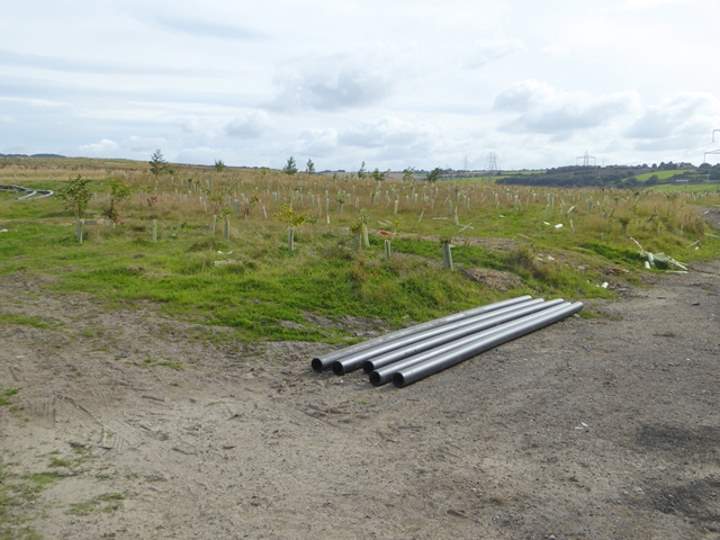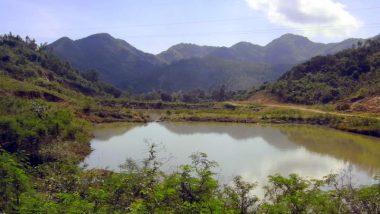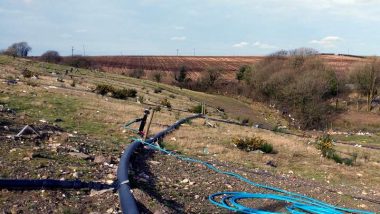IPPTS Associates’ Role in this case study in Leachate Management for Environmental Compliance was: Leachate Expert
Commercial client in north-east England.
Leachate Management Options Study: Including a report on alternative leachate discharge routes, with and without on-site leachate treatment, using alternative leachate treatment process options.
As a result of the study, a technical report and talks with water treatment process specialists and contractors suggested that leachate pre-treatment (reed beds or pre-aeration) and reverse osmosis be used together to meet environmental emissions standards.
Included were assessments of RO systems offered by suitably experienced RO Unit manufacturers and negotiations with the preferred reverse osmosis company RoChem Ltd.
That’s our quick summary, but for a detailed discussion of this case study read on!
Leachate Management for Environmental Compliance for a Commercial Client in North-East England
Learn how effective leachate management for environmental compliance was achieved in this case study. A solution for UK waste permit compliance.
Introduction
Welcome to our page on leachate management for environmental compliance. In this case study, we will explore the importance of effective leachate management and how it can help businesses achieve environmental compliance.
What is Leachate?
Leachate refers to the liquid that is generated when water comes into contact with waste materials. It contains various pollutants and can have detrimental effects on the environment if not managed properly.
Leachate Management Techniques
There are several techniques available for leachate management, including landfill leachate collection and abstraction from leachate wells, plus:
- either the operation of a treatment plant
- evaporation in hot dry climates, or
- tankerage off-site to a wastewater treatment works.
Choosing the right technique is crucial for ensuring environmental compliance and minimizing the impact on surrounding ecosystems.
Case Study: Achieving Effective Leachate Management for Environmental Compliance
In this case study, we will delve into a real-life example of a company that IPPTS Associates provided with a landfill leachate treatment system design that, if implemented, would have provided effective leachate management, treatment, and disposal to a public sewer, to meet all environmental compliance requirements.
This project did not proceed due to the buy-out of the company to be operated by a larger landfill operator before the project could be completed.
We will discuss the challenges faced, the steps taken, and the positive outcomes achieved.
Background Information
A rapidly growing recycling company needed a landfill for disposal of their residual waste after pre-treatment at their MRF (materials recovery facility). To comply with environmental regulations they engaged IPPTS Associates to prepare an options report to advise on all the potential options for leachate management at the site.
No nearby wastewater treatment works were available that held a permit to accept tankers of leachate from the site. Finding a discharge route to a receiving sewer or watercourse was therefore the consultant’s biggest obstacle to overcome.
Of secondary concern was that the water quality required after leachate treatment would be very high for all potential discharge routes open to the business.

Leachate Management Options Report
The consultant’s report on leachate management options looked at and ruled out a lot of different ways to treat and get rid of leachate. All of them would require building a private leachate discharge pipeline over long distances at a high initial investment cost to the recycling company.
However, a preferred option was identified, and it was concluded that:
- Leachate pre-treatment (reed beds or pre-aeration) and reverse osmosis would be installed
- A leachate storage facility would provide capacity for leachate storage in wet weather
- Automatic monitoring of the quality of the treated leachate effluent would be installed to ensure compliance with the environmental emissions regulations.
- Additional work was recommended to confirm the study’s technical findings, and the costs would be estimated, after discussions with contractors and professionals in specialist water treatment processes and pipeline construction.
- The consultant’s next phase of work would have included further discussions with the chosen reverse osmosis provider and an assessment of the costs and energy requirements for RO systems from knowledgeable RO unit manufacturers.
Results and Benefits of this Case Study in Leachate Management for Environmental Compliance
The implementation of a compliant leachate management, treatment, and disposal plan for this site was vital.
Without it, the site would not have been able to obtain its landfill permit and would not be viable as a municipal solid waste landfill. In short, the site would have no value and might be a liability to its owner.
Leachate Management for Environmental Compliance – Frequently Asked Questions
Q: What is the purpose of leachate management?
A: Leachate management aims to prevent the contamination of soil, groundwater, and surface water by effectively managing the liquid waste generated from landfills or other waste disposal sites.
Q: What are the legal requirements for leachate management in the UK?
A: The UK has specific regulations and permits in place that govern leachate management. These requirements ensure that businesses handle and treat leachate in a manner that protects the environment and public health.
Q: How does leachate management contribute to environmental compliance?
A: By implementing effective leachate management practices, businesses can meet regulatory requirements, minimize the risk of pollution, and demonstrate their commitment to environmental stewardship.
Q: What are the common challenges in implementing effective leachate management?
A: Some common challenges include selecting the appropriate management techniques, ensuring proper monitoring and maintenance, and addressing potential financial and logistical constraints.
Q: What are the different techniques used for leachate management?
A: Leachate management techniques include landfill liners, leachate collection systems, and treatment processes such as biological treatment, chemical treatment, and evaporation.
Q: How can I determine the most suitable leachate management for environmental compliance technique for my facility?
A: The selection of a leachate management technique depends on various factors, including the type and volume of waste generated, site conditions, regulatory requirements, and available resources. Consulting with experts in the field can help determine the most suitable approach for your facility.
Q: What are the potential consequences of non-compliance with leachate management regulations?
A: There may be legal repercussions, harm to one’s reputation, environmental degradation, and even health risks if leachate management regulations are broken. All new landfill businesses need to prioritize planning their leachate management for compliance from an early stage of landfill site acquisition to avoid these consequences.
Conclusion to this Effective Leachate Management for Environmental Compliance Case Study
Effective leachate management is crucial for businesses to achieve environmental compliance and protect the environment.
By learning from real-life case studies and understanding the importance of selecting the right leachate management advice, businesses can implement sustainable solutions to leachate management and treatment that benefit both their operations and the planet.
For more information or assistance with leachate management, please contact us.




You must be logged in to post a comment.